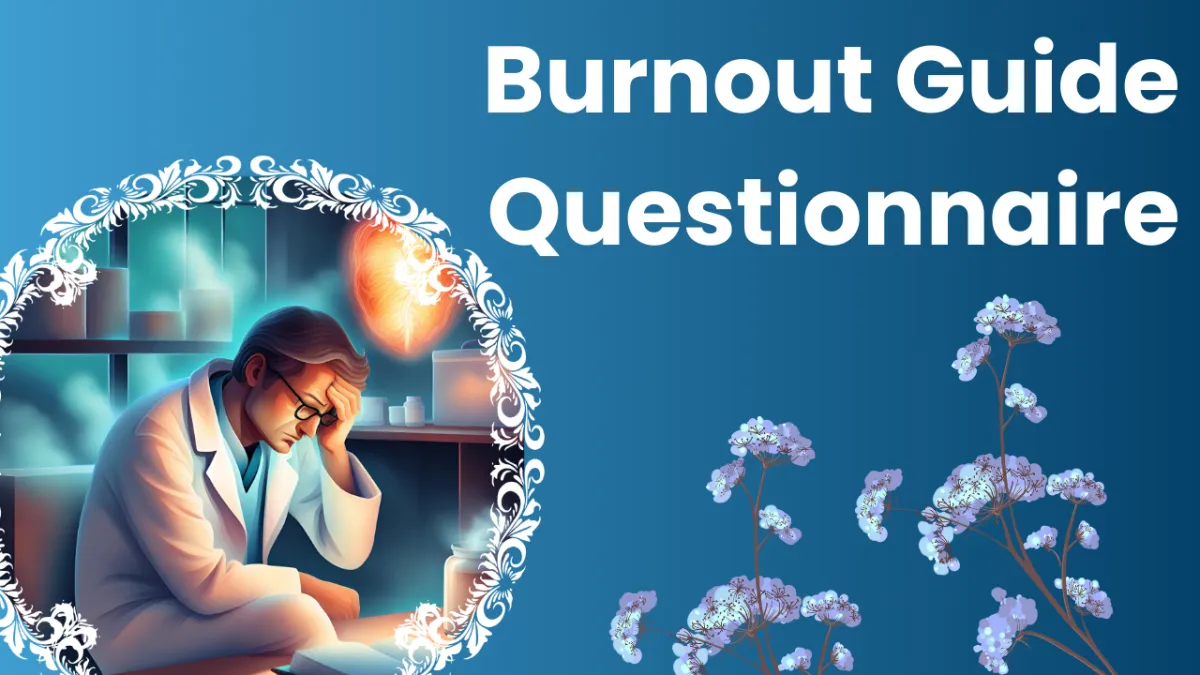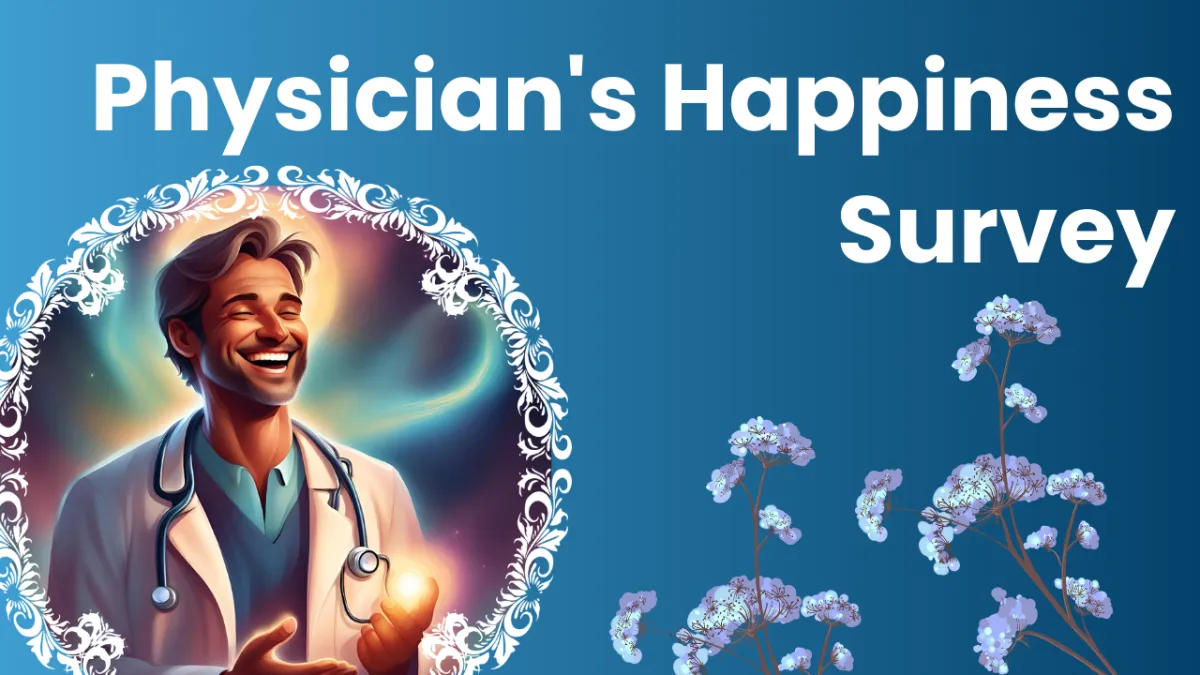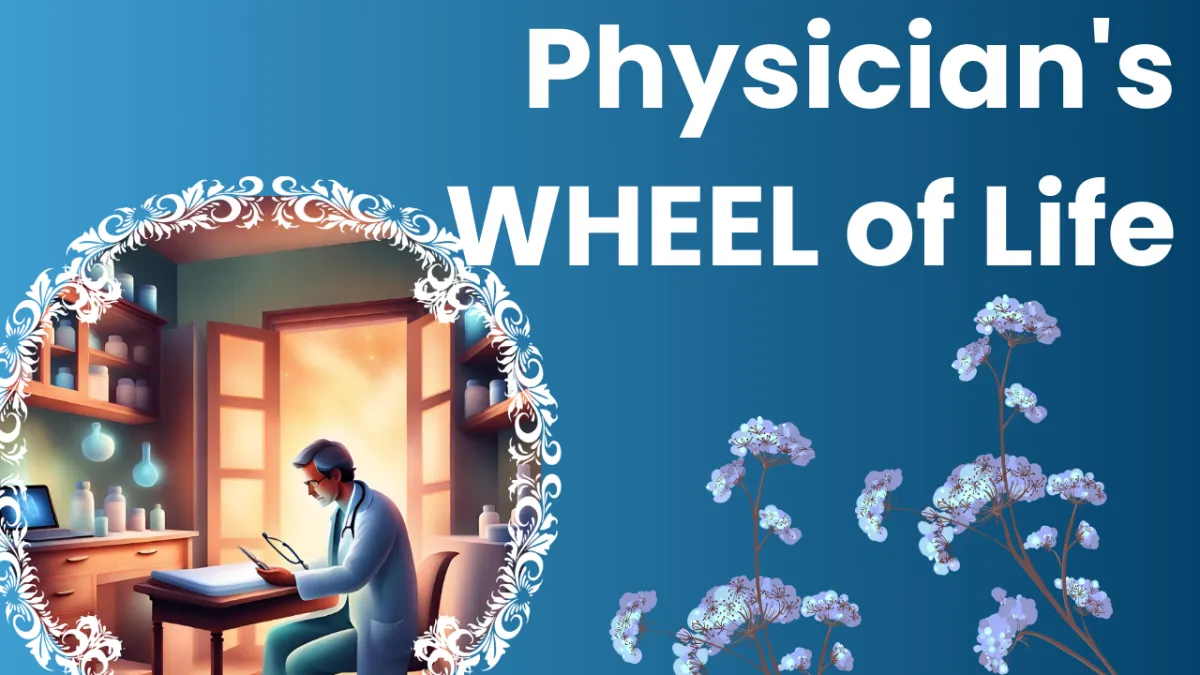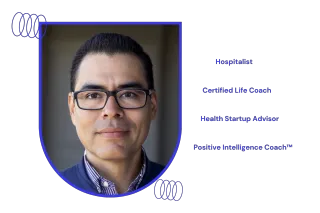We are currently updating our website. While it's not yet mobile-friendly, we recommend browsing on a desktop for the best experience. Rest assured, we're working on improving your experience on our site.
EMPOWERING DOCTORS
Remember what drew you to medicine and explore ways to add fulfillment back into your life.
GOAL SETTING GUIDE

Achieve Your Goals Faster with Time Management & Goal Setting Tools
Tried to-do lists and calendars but still feel overwhelmed? get the tools you need to stay organized and reach your goals faster. Sign up now for exclusive content.
Miguel Villagra, MD, FACP, FHM
Gain insights and explore collaboration opportunities with a dedicated business strategy session. This meeting is tailored for potential business partners or affiliates seeking to align visions and maximize growth opportunities. Reserve your spot today and let's chart a path to success together.

READ OUR LATEST BLOG

7 Life-Saving Strategies for Burnt-Out Healthcare Heroes: Reclaim Your Time and Sanity
7 Life-Saving Strategies for Burnt-Out Healthcare Heroes: Reclaim Your Time and Sanity
Healthcare professionals are no strangers to long hours, demanding schedules, and the emotional toll of patient care. While this dedication is admirable, it often comes at the cost of personal well-being. Achieving work-life balance is more than just a luxury—it’s a necessity for sustaining your health, happiness, and ability to provide the highest quality care.
This guide offers actionable strategies to help you set boundaries, manage your time, and prioritize self-care, so you can find equilibrium in your professional and personal life.

Why Work-Life Balance Matters in Healthcare
Caring for Yourself is Caring for Others
Healthcare providers often prioritize their patients above all else, but this can lead to burnout if personal needs are neglected. Striking a balance isn’t selfish—it’s a vital part of being a sustainable and effective caregiver.

Benefits of a Healthy Work-Life Balance:
Improved Mental Health: Reduced stress and anxiety help you stay focused and present at work and at home.
Enhanced Patient Care: A refreshed and energized provider delivers better, more compassionate care.
Sustained Career Longevity: Preventing burnout ensures you can continue making a difference without sacrificing your well-being.
Key Insight: Work-life balance isn’t about perfection; it’s about making intentional choices that align with your values and priorities.
Research shows that healthcare professionals who maintain a healthy work-life balance report higher job satisfaction, lower rates of medical errors, and increased career longevity. A study published in the Journal of Medical Practice Management found that balanced providers were 63% less likely to experience severe burnout symptoms. These findings underscore the importance of implementing sustainable practices early in your healthcare career.
Step 1: Set Clear Boundaries
Protecting Your Time and Energy
Establishing boundaries between your professional and personal life is critical to achieving balance. Without them, work can easily spill into your downtime, leaving little room for recovery and personal fulfillment.

How to Set Effective Boundaries:
Leave Work at Work: Avoid bringing work home unless absolutely necessary. If you must, designate specific times and spaces for work tasks to prevent them from encroaching on your personal life.
Communicate Your Limits: Let colleagues and supervisors know your availability and when you need uninterrupted personal time.
Schedule Personal Time: Block out time for hobbies, family outings, or relaxation in your calendar—just as you would for work meetings.
Example:
A nurse schedules two hours every Sunday afternoon for a favorite hobby, making it a non-negotiable part of their week.
Pro Tip: Turn off work notifications after your shift to create a mental boundary between work and home.
Remember that boundaries aren't just about limiting work—they're about creating space for what matters most. When you protect your personal time, you become more resilient and effective in your professional role.
Step 2: Manage Your Time Effectively
Maximizing Productivity and Rest
Effective time management allows you to handle professional responsibilities while making space for personal well-being.

Strategies for Time Management:
Prioritize Tasks at Work: Focus on the most critical responsibilities during your shifts, and delegate non-essential tasks when possible.
Use Downtime Wisely: Take advantage of breaks to recharge—whether through a short walk, mindfulness exercise, or catching up on personal reading.
Plan Personal Activities: Schedule regular exercise, meals with loved ones, or leisure activities to create balance outside of work.
Example:
A physician uses a time-blocking method to dedicate specific hours of their day to patient care, documentation, and self-care activities.
Pro Tip: Review your schedule weekly to identify and adjust time-draining activities that don’t align with your priorities.
Effective time management requires regular evaluation and adjustment. Consider keeping a time log for one week to identify where your hours are actually going. This data can help you make informed decisions about restructuring your schedule to better serve both your professional duties and personal needs.
Step 3: Recognize and Address Burnout Symptoms
Preventing and Recovering from Burnout
Burnout is a pervasive issue in healthcare, often caused by prolonged stress, lack of control, and emotional exhaustion. Recognizing the signs early and taking action can prevent it from escalating.

Common Signs of Burnout:
Persistent fatigue, even after rest.
Irritability or difficulty concentrating.
Reduced enthusiasm for work or a sense of detachment.
How to Address Burnout:
Speak Up: Communicate with your supervisor about adjusting your workload or finding resources to help manage stress.
Seek Professional Support: Counseling or therapy can provide strategies for coping with stress and regaining balance.
Reevaluate Commitments: Reduce extra shifts or non-essential responsibilities to lighten your load.
Example:
A healthcare provider noticing signs of burnout joins a peer support group at their workplace, finding solidarity and actionable advice for managing stress.
Pro Tip: Use stress-reducing techniques like deep breathing, meditation, or journaling to address burnout symptoms proactively.
Remember that addressing burnout symptoms early is crucial for maintaining long-term career satisfaction and providing optimal patient care. Healthcare organizations increasingly recognize the importance of supporting their staff's mental health and are implementing programs to help identify and manage burnout before it becomes severe. Taking advantage of these resources, combined with personal strategies, can help you stay resilient in the face of professional challenges.
Step 4: Prioritize Self-Care
You Deserve the Same Care You Give to Others
Healthcare providers are skilled at taking care of others but often neglect their own needs. Prioritizing self-care is essential for maintaining physical, emotional, and mental health.

Self-Care Practices for Providers:
Physical Health: Exercise regularly, prioritize sleep, and maintain a balanced diet.
Emotional Well-Being: Engage in activities that bring joy, such as hobbies, socializing, or creative outlets.
Mindfulness Practices: Meditation, yoga, or gratitude journaling can help you stay grounded and reduce stress.
Example:
A busy physician dedicates 15 minutes each morning to meditation and stretching, setting a positive tone for the day.
Pro Tip: Start small—introduce one self-care habit at a time, such as a weekly yoga class or a nightly gratitude journal.
Investing in self-care isn't just about individual activities—it's about creating a sustainable lifestyle that supports your long-term well-being. Research indicates that healthcare providers who maintain consistent self-care routines report 40% higher job satisfaction and demonstrate greater resilience in high-stress situations. When you prioritize your own wellness, you're better equipped to handle the demands of healthcare while maintaining compassion and effectiveness.
Actionable Suggestions for Work-Life Balance
Simple Changes, Big Impact
Schedule “Me Time”: Dedicate at least one day a week or an hour a day to activities that help you relax and unwind.
Learn to Say No: Politely decline extra shifts or responsibilities when you’re feeling stretched.
Seek Support: Join peer support groups or participate in wellness programs offered by your workplace.
Unplug Regularly: Disconnect from work-related devices during personal time to fully recharge.
Example:
A nurse practitioner sets aside Friday evenings as family time, turning off work notifications and focusing on being present.
Overcoming Challenges to Work-Life Balance
Stay Flexible and Persistent
Achieving balance is an ongoing process, and challenges are inevitable. By staying proactive and adaptable, you can overcome obstacles and maintain equilibrium.

Common Challenges and Solutions:
Unpredictable Schedules: Use a flexible time management system to adapt to changes without compromising personal priorities.
Guilt Over Saying No: Remind yourself that prioritizing your well-being benefits both you and your patients.
Difficulty Disconnecting: Establish a transition ritual after work, such as a walk or a relaxing activity, to mentally shift from work to personal time.
Conclusion: Balance is the Key to Longevity
Creating a healthier work-life balance isn’t about perfection; it’s about finding a rhythm that allows you to thrive both professionally and personally. By setting boundaries, managing your time effectively, recognizing burnout symptoms, and prioritizing self-care, you can maintain your well-being while continuing to provide exceptional care to your patients.
Ready to Create a Healthier Work-Life Balance?
At A Doctor’s Journey, we help healthcare professionals achieve balance, reduce burnout, and build fulfilling careers. Our coaching programs are tailored to provide actionable strategies and personalized support for your unique challenges.

Take the first step toward a healthier you. Schedule a free consultation today.
Schedule Your Free Consultation

Key Takeaways
Work-Life Balance is Essential: Healthcare providers who maintain balance report higher job satisfaction and lower burnout rates
Clear Boundaries Matter: Setting limits between work and personal life is crucial for sustainable healthcare practice
Time Management is Critical: Effective scheduling and prioritization help balance professional duties with personal needs
Early Burnout Recognition: Identifying and addressing burnout symptoms promptly prevents escalation and maintains care quality
Self-Care is Non-Negotiable: Regular physical activity, emotional well-being practices, and mindfulness support long-term career sustainability
Support Systems Help: Utilizing peer groups, professional support, and workplace wellness programs aids in maintaining balance
READ OUR LATEST BLOG

Gain insights into your current MENTAL and EMOTIONAL STATE.

This survey aims to understand the current state of HAPPINESS and WELL-BEING among physicians and to gather INSIGHTS on effective strategies for fostering JOY in the medical profession.

Discover the power of the Physician's Wheel of Life survey, designed to help physicians assess their current positions and chart a course towards greater fulfillment and success. Explore what success truly means to you in medicine and entrepreneurship, identify your values and purpose, envision an integrated future and assess your life portfolio.
GOT QUESTIONS ABOUT REVITALIZEMD? WE GOT ANSWERS...
What is RevitalizeMD?
RevitalizeMD is a specialized mentorship program designed to empower physicians by providing guidance on career transitions, managing burnout, and achieving holistic well-being.
Who is the program for?
Specifically tailored for physicians and physician assistants, RevitalizeMD addresses the unique challenges and aspirations faced by medical professionals.
What are the benefits of joining RevitalizeMD?
Participants gain personalized support, practical strategies, and access to a supportive community, all aimed at helping them reach their personal and professional goals.
How many coaching sessions does the program include?
The program comprises four private coaching sessions covering essential topics like self-discovery, work-life integration, resilience, empowerment, time management, wellness, and overcoming setbacks.
Who will be coaching me?
You will be coached by a Certified Physician Life Coach and Positive Intelligence Coach with extensive experience in assisting professionals, ensuring expert guidance tailored to your unique needs.

How can I join the RevitalizeMD program?
For more details on enrolling in RevitalizeMD, please contact us at 📩 [email protected] or 📲 (505) 433-7130.
Elevate Your Leadership and Career
Gain the tools and strategies needed to become a more effective and inspiring to our fellow physicians, entrepreneurs and other sectors. Follow us on social media, sign up for our newsletter and engage with our community to stay inspired, informed, and connected on your journey of transformation.
SUBSCRIBE TO OUR NEWSLETTER
You are granting Adoctorsjourney permission to send you occasional emails with updates, resources, and special offers. You can unsubscribe from these emails at any time by clicking the "unsubscribe" link at the bottom of any email we send you. We will not share your information with any third parties without your consent.
Copyright @ 2024 Adoctorsjourney, LLC
All Right Reserved.














